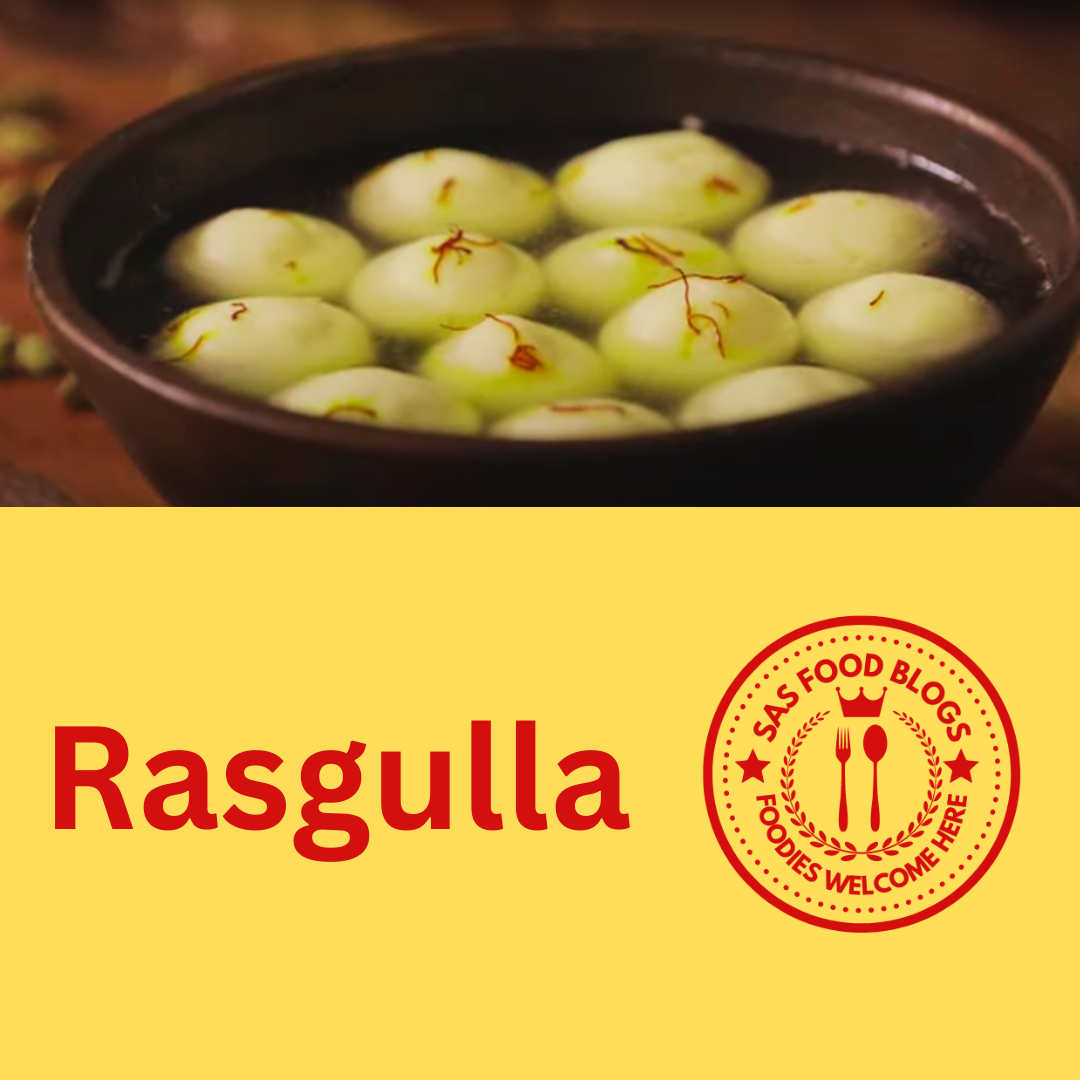How to make Rasgulla?
Hello Friends welcome to SAS FOOD BLOGS, Today we are going to see how to make Rasgulla.
Rasgulla is a popular dessert in Indian cuisine, particularly in the regions of West Bengal and Odisha. It is a sweet and spongy dumpling made from chhena (Indian cottage cheese), which is kneaded and shaped into small balls.
These balls are then cooked in a sugar syrup until they become light and spongy. The process of making rasgulla involves preparing the chhena by curdling milk and separating the whey. The chhena is then kneaded, and small round balls are formed.
These balls are cooked in a sugar syrup until they absorb the syrup and become soft and spongy. Rasgullas are often served chilled, and they have a delicate, sweet flavor.
Rasgulla is a popular dessert during festivals, celebrations, and special occasions in India. It is also enjoyed in various other parts of South Asia and has different regional variations with slight differences in preparation and presentation.
Rasgulla Recipe
Sure, here’s a basic recipe for making rasgulla at home:
INGREDIENTS:
For the Chhena (Cottage Cheese):
- 1 liter of full-fat milk
- 2 tablespoons of lemon juice or vinegar
For the Sugar Syrup:
- 2 cups of sugar
- 5 cups of water
- A few strands of saffron
- 1/2 teaspoon of cardamom powder
Preparation Method
Today’s recipe is delicious and taste recipe that is Rasgulla and so let’s gets started.
Step 1 (Rasgulla)
Prepare the Chhena:
- Take a pan and add 1 litre of full-fat milk and boil it.
Once it boils, add lemon juice or vinegar to curdle the milk.
Stir until the milk solids (chhena) separate from the whey. - Strain the mixture through a muslin cloth to separate the chhena.
Rinse the chhena under running water to remove the lemony flavour.
Knead the Chhena:
- Gather the chhena in the cloth and squeeze out any excess water.
Place the chhena on a clean surface and knead it well for 8-10 minutes until it becomes smooth and soft.
Shape the Rasgullas:
- Divide the kneaded chhena into small, equal-sized balls and shape them into round or oval shapes.
Step 2 (Rasgulla)
Prepare the Sugar Syrup:
- In a wide and deep pan, combine sugar and water. Then boil the mixture and dissolve the sugar and then add saffron strands and then add the cardamom powder to the syrup.
Cook the Rasgullas:
- Then gently slide the chhena balls into the sugar syrup by keeping flame on slim.
Cover the pan with a lid and let it cook on medium heat for about 15-20 minutes.
The rasgullas will double in size and become spongy.
Cool and Serve:
- Allow the rasgullas to cool in the syrup. Once cooled, refrigerate them for a few hours before serving.
Rasgulla is ready to serve, so you can try this recipe in your home and enjoy it and share the recipe with your family and friends.
Benefits of Rasgulla:
Rasgulla, like many other traditional Indian sweets, is primarily a dessert and is enjoyed for its delicious taste. While it is not considered a health food, it does contain some nutritional components.
Step 3 (Rasgulla)
- Source of Energy: Rasgulla provides a quick source of energy due to its carbohydrate content. The sugar in the syrup and the carbohydrates in the chhena contribute to the caloric content of the dessert.
- Protein from Chhena: The chhena used to make rasgulla is a good source of protein. Protein is essential for the body for the repair and maintenance of tissues.
- Calcium Content: The milk used to make chhena is a source of calcium, which is important for maintaining strong bones and teeth.
- Moderation is Key: While rasgulla has some nutritional components, it is essential to consume it in moderation. The high sugar content may not be suitable for individuals with diabetes or those looking to manage their sugar intake.
- Cultural and Emotional Value: Food, including desserts like rasgulla, often holds cultural and emotional significance. Enjoying such traditional dishes as part of celebrations or special occasions can contribute to overall well-being.
- It’s important to note that rasgulla, like many sweets, is best enjoyed as an occasional treat rather than a regular part of the daily diet.
- If you have specific dietary concerns or health conditions, it’s advisable to consult with a healthcare professional or a nutritionist for personalized advice.
